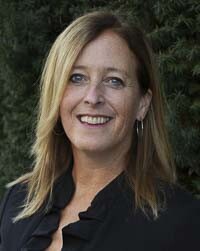
Elizabeth Hovde of the Washington Policy Center provides an update on the recent Universal Health Care Commission meeting
Elizabeth Hovde
Washington Policy Center
A large part of the Dec. 14 meeting of the Universal Health Care Commission (UHCC) was process again. Time was spent organizing the commission and its subcommittees around what it plans to focus on first, second and third as it paves a path to a taxpayer-financed, government-run system of health care.

That couldn’t have pleased the handful of people who showed up to give public comment that the UHCC was moving too slowly bringing them the new system and that they needed cheaper health care now. One public commenter pressuring the state commission said, “This is important. I’d like to see the commission acting like it’s important.”
Public commenters told the commission to follow an Oregon task force’s lead, to adopt ideas pushed by Whole Washington, a group that has sought to change the state’s system of health care via initiative, and Sen. Bob Hasegawa showed up to push his Senate Joint Memorial that would ask the federal government for “universal” health care or get it to allow the state to go it alone. Read Washington Policy Center’s caution against that misguided legislation last year. The commission should withhold its support and lawmakers should ignore SJM 8006 this coming legislative session. A fast track to a weaker, less-accessible, tax-heavy health care system is not what we need.
Commissioners reminded that moving to a taxpayer-financed, government-run system for all would take time, needed to be done biennium by biennium, and that a lot of the commission’s hoped–for progress had to do with political will, still-needed waivers and provider finessing. When discussing transitional plans, they talked about consolidating government-provided insurance plans, growth in those plans and the state increasing its Medicaid rolls.
Having more people not paying their way for health care is not something that should be congratulated or sought. In many cases, it will mean more people in Washington state are financially struggling. It also means taxpayers are taking on others’ health care bills. Safety nets are important and generously provided by taxpayers, but safety nets they should remain.
The impact of government-run, taxpayer-financed health care on cost-containment is not good. The impact on access and quality is worrisome.
The UHCC and the public need to acknowledge that health care costs money. Regulations make it more expensive. A third-party-payer system is harming us. And we need more people paying for health care, not fewer.
Health care also needs to be prioritized by state residents. It is one of our greatest needs, after all. Cost transparency can help make better-informed consumers. Competition and innovation can bring more cost-containment, access and quality. The commission isn’t focused on those things, however. At lawmakers’ direction, it is working on government-run health care instead, despite the harsh consequences that can be seen in other countries.
Elizabeth Hovde is a policy analyst and the director of the Centers for Health Care and Worker Rights at the Washington Policy Center. She is a Clark County resident.
Also read:
- Opinion: In-n-Out Burger is so much more than fast food for so many of usPaul Valencia shares why In-n-Out Burger means more than just fast food for countless fans as Ridgefield nears its grand opening and Vancouver’s location begins construction.
- Opinion: Washington’s June 2025 budget revisions – revenue up spending up moreMark Harmsworth of the Washington Policy Center critiques the state’s latest budget revisions, warning that new taxes—not organic growth—are driving revenue. He calls for fiscal restraint and long-term reform.
- Opinion: Pedestrian control signalsDoug Dahl explains Washington state law regarding crosswalks and pedestrian signals, offering safety insights and common misunderstandings about traffic control at intersection
- Letter: ‘How can five part-time legislators without research support or reliable access to information serve as an effective check on six full-time elected executives’Bob Zak expresses agreement with recent opinions on the Clark County Charter’s imbalance and endorses John Ley’s transit preference while questioning light rail costs and Council effectiveness.
- POLL: Should the Clark County Clerk remain an elected position?Following public opposition, Clark County Council dropped a proposal to make the clerk an appointed role. Readers can now weigh in through this week’s poll on whether the clerk should remain elected.










